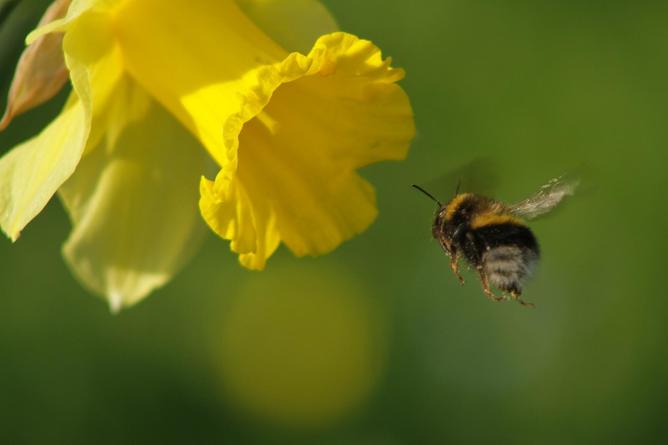For crops like almonds, bees are rented. They are flown on planes or shipped on trucks and do their work and then go somewhere else. California only has 1.3 million acres of almond trees, which means about 2.6 million honey bee hives are needed every year. That is why 90% of rented bee colonies are in California. It’s a lucrative market and they can ship bees elsewhere as needed.
Recently, beekeepers were surveyed and just like if you ask customers of any product if they’d like fast, cheap, and high-quality, they respond yes to all; beekeepers know that the market for so-called “organic” honey is tiny because the organic process has no way to stop pests like varroa mites, the top killer of bees. They can check a box on a survey saying they’d like “no pesticides” in place on farms but you can bet they use them in their own hives. Otherwise, they are 100% guaranteed to go out of business, because colony collapse disorder due to varroa mites has been recorded for as long as bee hives have been recorded; 1,100 years. Pesticides don’t cause it, they prevent it.

If you think bees are dying, and pesticides are killing them, you are statistically likely to believe vaccines cause autism, organic food is healthier, and that powdered rhino horn treated your COVID-19. Credit: Tiago Cabral, CC BY-NC
Cover crops also sound great, as long as that doesn’t reduce their $200 per hive payment.
The only thing that really interests beekeepers is…wait for it…being paid. Preferably in advance. On surveys, of 8 options, no pesticides was the favorite and in a virtual scenario that was worth about $8 per hive, followed by 2 cover crop choices, but as we have seen in every Presidential election when there is a real contest, surveys are not behavior.
In behavior, beekeepers put prepayment at the top of the list and will take less money to get paid in advance. When that is an option, they remember that fungicides can’t harm bees and care less about what cover crop a farmer invests in. The number one driver of beekeeper comfort with their customers is being paid but the authors of the paper don’t seem to know anything about farming beyond National Honey Board trade group talking points because they write their survey results “might lead to attracting a beekeeper to your farm that you weren’t going to get otherwise.”
Who are these elite beekeepers that farmers only dream about getting? Do they think it’s like “Elf”, where the publisher brings in a fancy children’s book author who they’re nervous about meeting?
They understand that’s just a movie, right? In the non-movie world, beekeepers want farmers to pay the invoice. Everything else is as useful as survey results.









Leave a Comment